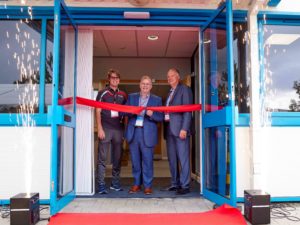Who Buys Flow Control and Treatment Equipment?
Sales calls, advertising and exhibiting by air, gas, liquid, water flow control and equipment suppliers are all predicated on certain assumptions relative to the identity of the decision maker for the product being sold. McIlvaine analyses in N064 Air/Gas/Water/Fluid Treatment and Control: World Market show that there is a continuing shift in responsibility.
The following trends are clear:
- The divide between how decisions are made on commodity vs. engineered products widens,
- Decisions for a specific engineered product are concentrated in fewer individuals,
- The total number of decision makers increases due to the increasing number of product categories which are purchased,
- The importance of face-to-face contact is diminishing,
- The reliance on life cycle cost rather than initial cost increases,
- The challenge to assimilate the needed knowledge to make buying decisions continues to grow.
Commodity vs. Engineered Products:
Decisions on commodity products continue to be made by the purchasing department. They are concerned about reliability of supply and cost, but rarely need input from other departments. On the other hand, the complexity of engineered product and particularly those which can impact the company s quality control are likely to be made with greater input from engineering and operating management and less on purchasing.
Purchasing people expect to be reactive and respond to seller inputs. So direct sales contact, sales leads and similar tools gain in importance. Those making decisions on engineered products tend to be proactive and now tend to make decisions over longer time spans. Gone are the days when the foreign delegation would attend the Tri Annual Achema fair and have to make major decisions on the spot. These decisions are now forged over time and from a number of sources. The supplier who waits for the sales lead or formal specification is in difficulty.
Concentration of decision making in fewer individuals
Growth of large companies and the trend toward internationalization result in key product decisions being made by a few individuals. An engineer at Intel may make high efficiency filter selections for semiconductor facilities throughout the world. A valve expert at Petrobas will make key decisions about severe service valves which may influence the selection of hundreds of thousands of valves per year.
Another factor in the continuing concentration of decision making is the rapidly growing amount of knowledge which may be relevant to the decision. Niche experts are needed to keep up with this knowledge explosion.
Increasing numbers of decision makers
The knowledge explosion dictates that pump and valve decisions be made by separate individuals. The specialist on subsea valves will not be involved in decisions on valves for LNG plants. The engineer making scrubber decisions for EON will not be making the decisions on products to upgrade precipitator transformer rectifier sets.
With more and more decision makers each influencing greater numbers of purchasing decisions, it becomes a major challenge for suppliers to reach the right person at the right time. Understanding of the inner workings of the target companies becomes more important than obtaining the specification for the latest project. If the expert does not already have you on the "short" list, early access to a specification is not valuable.
Face-to-face discussions diminish in importance
A new generation of decision makers who is constantly communicating digitally has less time for face-to-face discussions and is relying on alternatives for critical decisions. Personal relationships will always be important but they are now complemented by many other communication tools.
Greater reliance on life cycle cost rather than initial price
In the past it has been difficult to make life cycle cost comparisons between competitive products. The access to reliable comparisons is resulting is increasing use of this tool.
The challenge to assimilate needed knowledge
Knowledge continues to expand and the human brain does not. The purchaser must now rely on niche experts who can keep up with the latest developments. The seller has to create new routes to supply the niche expertise. The local sales representative cannot deliver it and the customer cannot supply it. Sellers who effectively address this need have a substantial advantage.
Source: The McIlvaine Company




